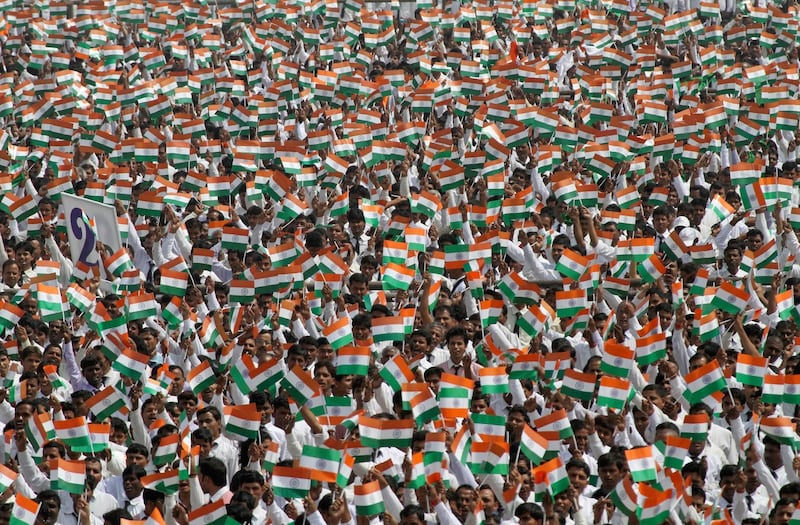In a fit of competitive nationalism, Indian politicians across parties have called for a number of changes to the national anthem, demanding that it reflect the country in the 21st century.
The anthem, Jana Gana Mana, was adopted by a newly independent India in 1950. But some of its anachronisms derive from the original source of the lyrics: a 1911 poem composed and set to music by the Nobel-winning poet Rabindranath Tagore.
That poem, running to five stanzas, hailed the “dispenser of the destiny of India” and was first sung in December 1911 at a meeting of the Congress party. British newspapers claimed that Tagore was praising King George V, who was visiting India at the time, as this dispenser of destiny.
But Tagore himself clarified that he was opposed to British rule, and that his poem referred to a divine deity. “Neither the Fifth nor the Sixth nor any George could be the maker of human destiny through the ages,” he wrote in a letter to a friend.
_______________
Read more: The origin and meaning of India's national anthem
_______________
Other sections of the anthem, which is from the first stanza of Tagore’s poem, continue to provoke debate.
The lyrics include an incomplete tour of India in Tagore’s time, name-checking various provinces and geographical features. A resolution moved in the upper house of parliament last week calls for the inclusion of a reference to north-eastern India, which does not get a mention.
"The North-east is an important part of India; it is unfortunate that it is not part of the national anthem," said Ripun Bora, a Congress party MP from the north-eastern state of Assam, in a letter accompanying his resolution.
“On other hand, Sindh is mentioned, which is no longer part of India but part of Pakistan, which is a hostile country.”
The anthem was adopted subject to amendment, Mr Bora pointed out. He quoted the president of India in 1950, Rajendra Prasad, as saying that the anthem would permit “such alterations in the words as the government may authorise as occasion arises”.
Mr Bora’s resolution will be discussed in the upper house this week.
A demand to delete Sindh from the anthem was raised in parliament by the Shiv Sena MP Arvind Sawant in 2016. India possessed no state called Sindh, Mr Sawant said; the word was a relic of a British-ruled India that stretched from the province of Balochistan, now in Pakistan, to the city of Sylhet, now part of Bangladesh.
On Saturday, Anil Vij, a Bharatiya Janata Party leader, suggested that the word “adhinayak,” which translated in Tagore’s poem into “the ruler of our minds”, be expunged.
In the context of an anthem, Mr Vij said, “‘adhinayak’ means ‘dictator’, and in India we don’t have a dictatorship but a democracy”.
Mr Vij also expressed support for Mr Bora’s resolution and called for the mention of Sindh to be dropped.
Nandita Bhavnani, the author of a history of India’s Sindhi community, which traces its origin to the province in Pakistan, pointed out that the anthem “isn’t a list of states where we add and subtract. How can we possibly be updating it every time a new state is created?”
She said Tagore's poem could be seen as "a way to embody the spirit of South Asia".
"When politicians make these demands, it feels like they're mainly trying to win mileage within their own constituencies," Ms Bhavnani said. "If an MP can replace the word 'Sindh' in the anthem with the name of his home state, can you imagine the publicity he would get?"
Previous efforts to amend the anthem have proved futile.
In 2005, a lawyer named Sanjeev Bhatnagar filed a petition in the Supreme Court pleading that the invocation of Sindh in the anthem infringed upon Pakistan’s sovereignty and offended the sentiments of Indians.
Members of India’s Sindhi community filed a counter-petition, arguing that the deletion of “Sindh” would amount to a negation of the community’s presence in the country.
The court dismissed Mr Bhatnagar’s petition.
“A national anthem is a hymn or song expressing patriotic sentiments or feelings,” a two-judge bench wrote. “It is not a chronicle which defines the territory of the nation which has adopted the anthem.”





